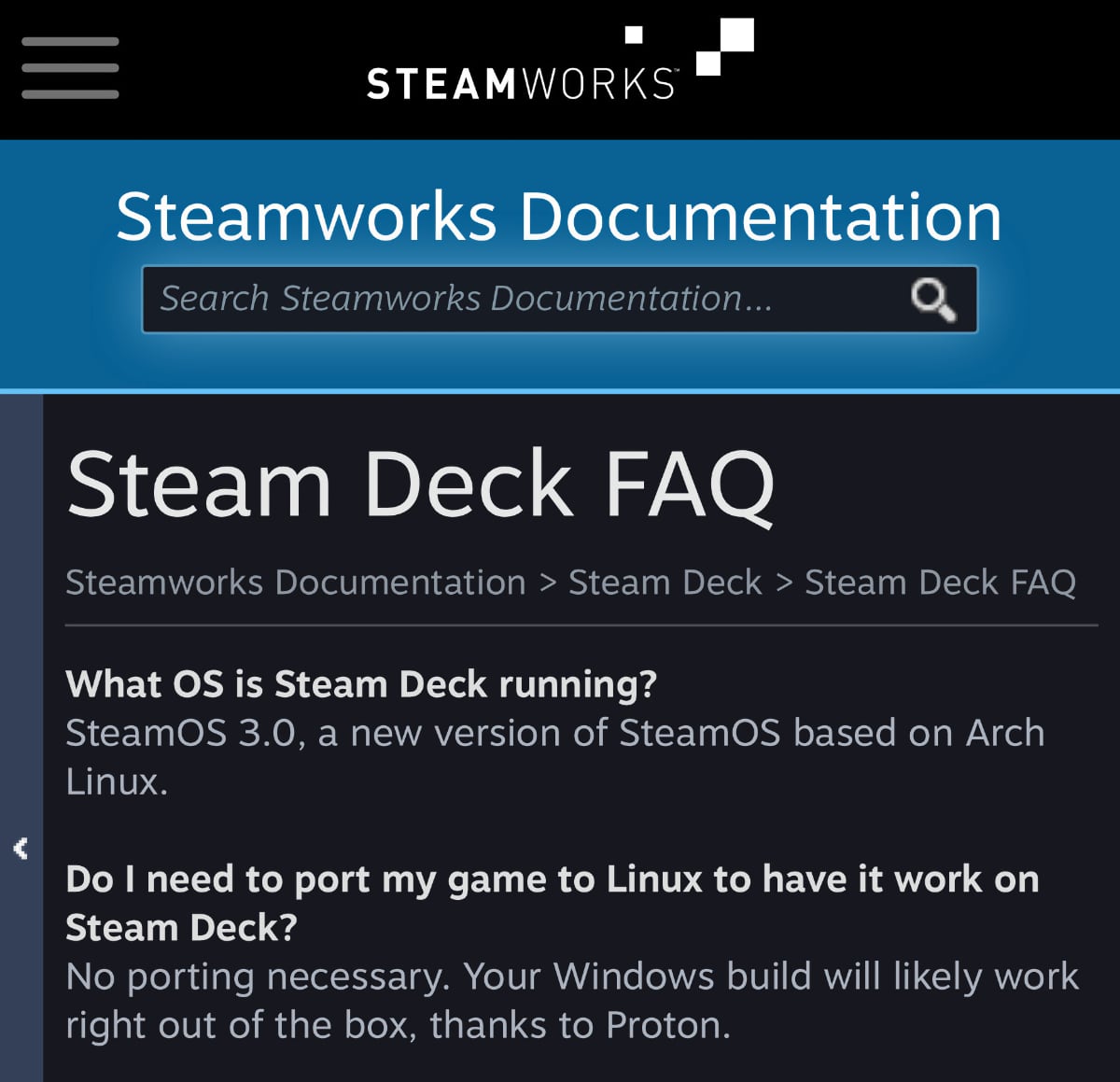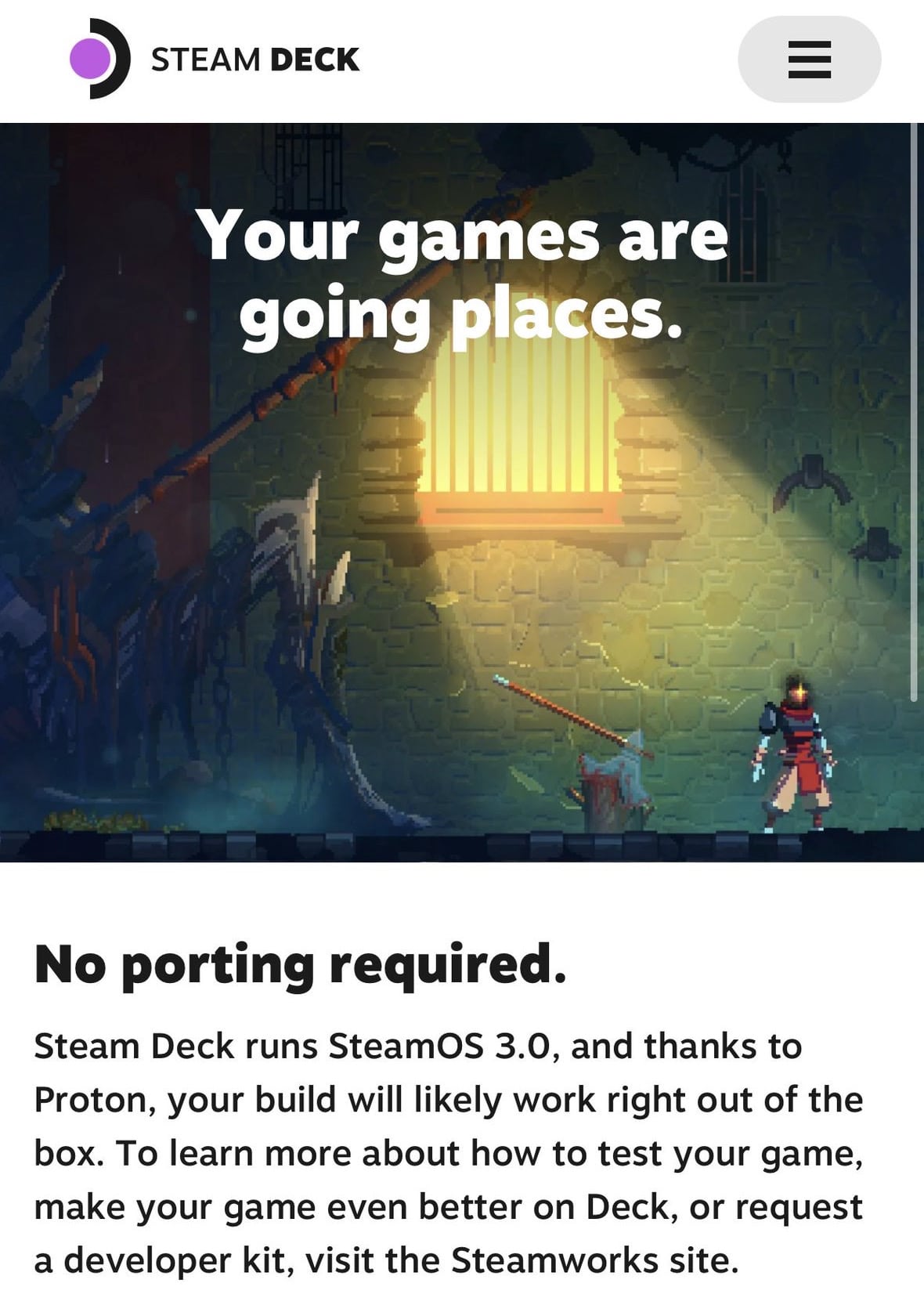Tag: proton
-
Valve’s Pre-Release Teardown of the Steam Deck Shows You How to Replace the SSD
and Warns Against it
-
How-To Geek: “Why You Should Use Proton Instead of the Steam Linux Runtime”
You should really just go play Escape Goat 2
-
Feral Cites Proton for Cancelling Linux Ports
Feral Interactive has a long history of bringing games to Linux and macOS, ironically Feral often (if not always?) use an abstraction layer to bring the games over, basically plugging some level of Windows emulation into the finished product. Yesterday, Feral announced ports for A Total War Saga: TROY and MYTHOS DLC for macOS and…
-

Ethan “flibitijibibo” Lee May Retire from Programming Due to Valve’s Proton
Earlier today I spoke with Ryan C. Gordon, the internet’s #1 icculus, to get his opinions on Valve’s new seemingly anti-native Linux gaming stance. The long and the short of it is that Gordon is seeing the bright side. If the Steam Deck is successful, it will give thousands of people playing games their first…
-

Native Linux Games vs Windows API Compatibility Layers on the Steam Deck
I spoke with Ryan C. Gordon, a renowned Linux developer for the past 22 years, today over a text chat to get his thoughts on the Steam Deck and native Linux ports in the light of Valve’s call for developers not to port games to Linux and instead rely on their Proton fork of WINE…
